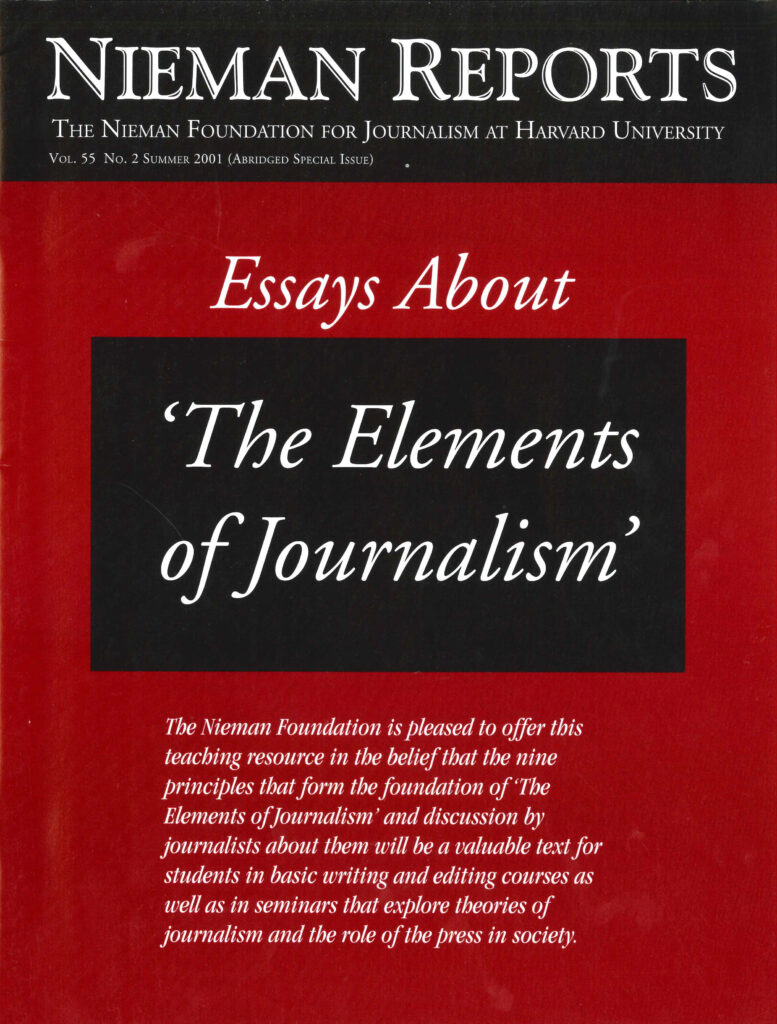ISSUE
Special Issue 2001

The Elements of Journalism
In “The Elements of Journalism,” Bill Kovach and Tom Rosenstiel describe nine principles of journalism that speak to the essential responsibilities of journalists, the standards informing their work, and the role of a free press in a functioning democracy. Nieman Reports invited U.S. and international journalists to write short reflective essays about how these principles affect their work. Their insightful commentaries are paired with excerpts from the book to create a valuable teaching tool and classroom resource.